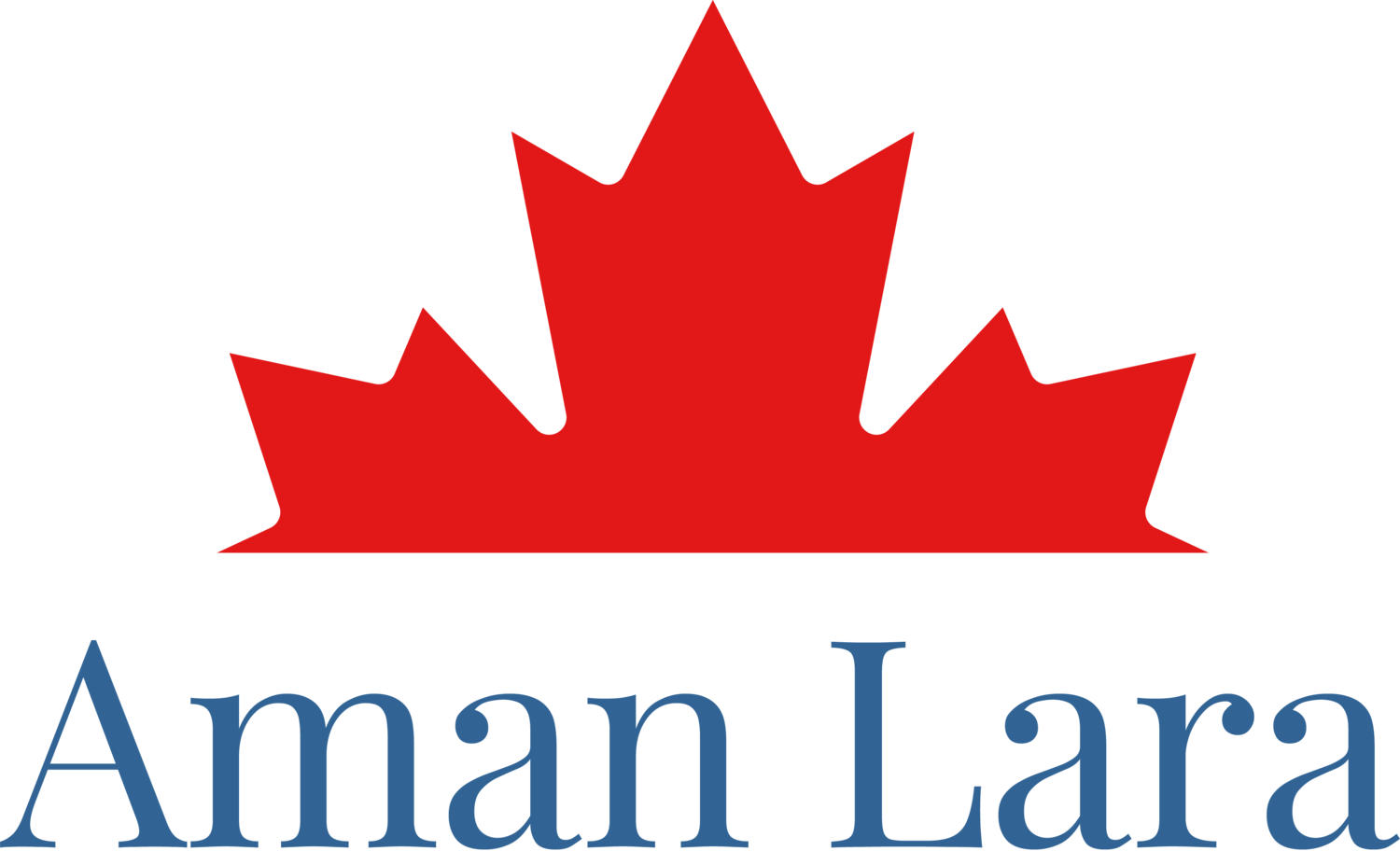Empowering newcomers to navigate the path to Canadian citizenship
by: Wendy Long
In August 2021, when the Taliban took control of Afghanistan, the ensuing political, economic, and humanitarian crisis disrupted millions of lives. In response, Canada committed to welcoming at least 40,000 Afghan refugees. Three years later, many of these newcomers are eligible to apply for citizenship. However, recent statistics reveal a concerning trend: the citizenship rate among immigrants has dropped sharply, from 75.4% in 1996 to 45.7% in 2021. Language barriers, digital literacy challenges, and financial constraints contribute to this decline.
At Aman Lara, we are dedicated to empowering refugees and newcomers with the resources and guidance they need to navigate their pathway to Canadian citizenship and integrate fully into their new communities. In this interview, I share insights and practical advice to support applicants on their citizenship journey.
Q. Aman Lara's mission is to enable the evacuation of eligible at-risk individuals from nations in crisis for resettlement in Canada and other safe jurisdictions. The organization further notes that resettlement goes beyond reaching a destination — it’s about building a new life. Can you share how this mission aligns with your work as Resettlement Director and the steps you take to support newcomers in creating sustainable new beginnings?
In March 2022, Afghan Canadian Interpreters, a trusted organization supporting Afghans who served alongside Canada in Afghanistan, joined forces with Aman Lara. This merger allowed us to combine our resources and expertise, strengthening our ability to support Afghan refugees in their resettlement journey. As Resettlement Director, I oversee and coordinate the various aspects of the resettlement process, ensuring newcomers have access to the resources they need when they arrive and fostering mentorship relationships between Canadians and newcomers. These connections cultivate a sense of community, helping newcomers navigate resettlement services and gradually work toward the ultimate goal of Canadian citizenship. Each step of the journey, from initial settlement to citizenship, represents a new chapter of belonging, resilience, and potential for these newcomers.
Q. What key advantages does Canadian citizenship offer over permanent residency for newcomers looking to deepen their roots here?
Canadian citizenship offers a host of advantages over permanent residency. It grants the right to vote, a Canadian passport for expanded travel, and the ability to pursue job opportunities that require citizenship. It also opens pathways to work in the United States under the North American Free Trade Agreement (NAFTA). Most importantly, citizenship provides a sense of security for refugees and their families by removing residency requirements. Unlike permanent residents, who must live in Canada for at least two years within a five-year period to keep their status, citizens can spend extended time visiting their home country without risking their Canadian status, allowing them to preserve a strong connection to their homeland.
Q. What specific challenges do refugees and newcomers face when embarking on the journey to apply for citizenship, and how can Aman Lara assist them in overcoming these obstacles?
Language proficiency can be a major barrier, particularly for Afghan women who may have had limited opportunities for formal education or English language training. High application costs can also pose a challenge, making it difficult for large families to apply together. Additionally, digital literacy is a significant hurdle, as many newcomers require support to navigate online application processes.
Some newcomers feel apprehensive about navigating the process and may consider hiring an immigration consultant. For those who choose to do so, it is important to verify the consultant’s credentials through the Public Register of Regulated Canadian Immigration Consultants (RCICs). Additionally, gathering all the required documents using a checklist to ensure nothing is overlooked and accurately completing all application fields can prevent delays and streamline the process.
Aman Lara is dedicated to assisting newcomers by providing guidance and connecting them with resources and support networks to ensure they feel confident navigating this journey. We understand that the process can be overwhelming, and we are here to provide the necessary support and guidance. Our goal is to ensure that refugees and newcomers feel reassured and confident as they embark on their journey towards Canadian citizenship.
Q. Becoming a Canadian citizen has eligibility requirements. What are the main criteria newcomers should be aware of when applying?
The core requirements for Canadian citizenship focus on age, residency, language proficiency, and knowledge of Canada. Adults between 18 and 54 must show proficiency in English or French, complete a citizenship knowledge test, and have a physical presence in Canada of 1,095 days over the past five years. Filing taxes in Canada for at least three years during that period is also essential. These criteria ensure applicants are integrated and invested in Canadian life before becoming citizens.
Q. Could you briefly walk us through the citizenship application process?
The citizenship application process involves several steps. Applicants start by filling out forms, paying processing fees, and submitting relevant documents. As of October 2024, the average processing time is six months. Once the application is submitted, applicants must pass a citizenship test before taking the citizenship oath in a final ceremony. This process may seem daunting, but it can be navigated successfully with the proper guidance and support.
Q. What are some effective ways for newcomers to prepare for the citizenship test, and what resources can help them succeed?
The citizenship test is a written exam to assess an applicant's knowledge of Canada, including its history, values, institutions, and symbols. It consists of 20 multiple-choice questions and is available in English or French. It should take no more than 45 minutes to complete it. To prepare, applicants are encouraged to use the official study guide, Discover Canada: The Rights and Responsibilities of Citizenship. This guide provides essential information about Canadian rights, responsibilities, history, and government. Qualified permanent residents can also contact local settlement agencies to inquire about virtual or in-person classes that can help guide applicants through the citizenship process. Additionally, practicing with sample questions and regularly reviewing material can help applicants stay well-prepared.
Q. Many newcomers may wonder what comes after this critical step on their path to Canadian citizenship. What should applicants expect?
After passing the test, applicants can breathe a sigh of relief when they receive an invitation to the citizenship ceremony. Ceremonies may be held in person or online, and Immigration Refugees and Citizenship Canada (IRCC) will notify applicants by email or mail approximately one to two weeks in advance. The invitation will include the ceremony date and time, a video conference link (for a video oath ceremony), or location details (for an in-person ceremony). At this stage, applicants have crossed the finish line. The ceremony is a decisive moment as they formally commit to their new home. It’s time to celebrate!
Q. What advice would you give newcomers on celebrating this significant milestone, and what lies ahead after they officially take the citizenship oath?
Rightfully so, many newcomers may wonder what lies ahead when they officially become Canadian citizens. I encourage them to see this moment as a symbolic beginning of a new chapter in their lives, one filled with opportunities and privileges. It’s a time to embrace the possibilities of becoming part of a diverse and welcoming country.
One of the best ways to celebrate this achievement is by participating in Canada Day celebrations to experience community pride and connect with fellow Canadians. Many communities even hold special citizenship ceremonies on Canada Day, allowing newcomers to reaffirm their oaths, listen to speeches by dignitaries, and meet other citizens. These events remind us of the diverse journeys that unite us all under the Canadian flag.
Additionally, I recommend taking advantage of the perks available to new citizens, such as free access to cultural sites across Canada, to further immerse themselves in Canadian culture. For those we’ve had the privilege to support on this journey, I look forward to celebrating with them on their special day—it’s truly one of the most rewarding moments of this process.
Q. Do you have any parting thoughts?
Citizenship is more than a status; it represents the culmination of efforts to integrate and thrive in a new country. This year, many Afghans supported by Aman Lara have reached out for information on applying for Canadian citizenship, recognizing the benefits of having a Canadian passport. They are eager to see their families, especially their children, gain citizenship and fully embrace life in Canada. At Aman Lara, we take immense pride in ensuring newcomers are equipped to meet the citizenship requirements and develop a true sense of belonging. We aim to support them in seeing Canada as a home for themselves and future generations.



